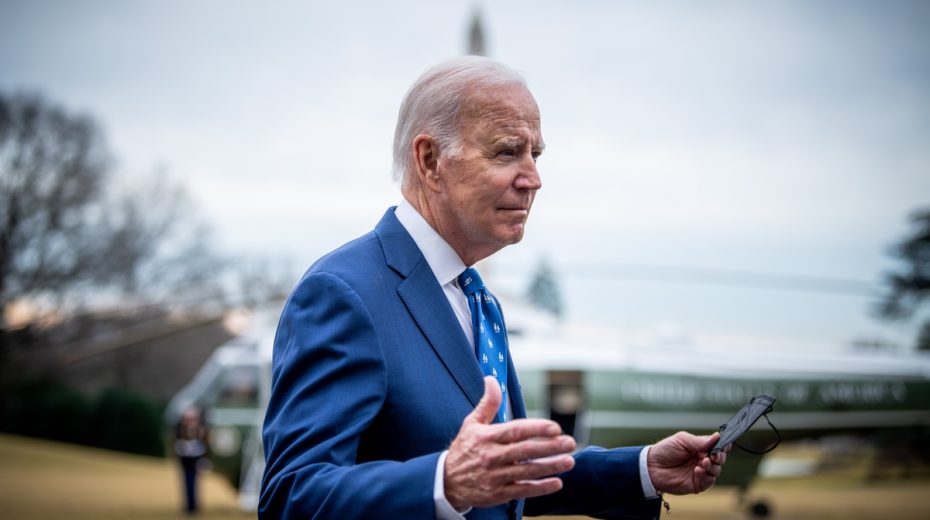At the beginning of August, we reported on the possibility of normalization in relations between Israel and Saudi Arabia.
The conclusion then was that full normalization is currently unachievable due to the position of Saudi King Salman who first wants Israel to resolve the conflict with the Palestinians, or at least make significant concessions to the Palestinian Authority.
Biden and the concessions to the PA
Following the publication of that analysis, reports continued coming in about ongoing talks on a normalization deal between Israel and Saudi Arabia.
The US administration of President Joe Biden is the driving force behind these negotiations.
Jake Sullivan, Biden’s national security adviser, was in both Saudi Arabia and Israel in August and US Secretary of State Antony Blinken has also been active on the normalization deal, holding regular phone calls with the government in Jerusalem, as well as with Palestinian leaders in Ramallah.
This is because it is now absolutely clear that Saudi Arabia is linking normalization in relations with Israel to concessions in favor of the Palestinian Authority.
This Saudi condition is clearly supported by the US administration, which has returned to the Obama administration’s policies toward Israel and is once again pushing for the so-called “Two-State Solution,” and is pressing Israel on other issues that serve the interests of the Palestinian Authority.
One of the concessions that the Americans expect from Israel is the reopening of the American consulate in east Jerusalem.
This consulate, which mainly served the interests of Palestinian Arabs, was closed when the Trump administration moved the US embassy from Tel Aviv to Jerusalem.
The different interests
Before we discuss the new demands for Israeli concessions and goodwill gestures towards the PA, let us first discuss the interests that Saudi Arabia and the United States have in a new addition to the Abraham Accords, the name for the normalization agreements between Israel and four Arab states.
The White House has a different interest in a new deal as Biden is desperately in need of a foreign policy success, after debacles such as the hasty withdrawal from Afghanistan.
Then there is the simmering conflict with China, which is increasingly expanding its influence in the Middle East.
China was responsible for the recent rapprochement between Iran and Saudi Arabia and is also willing to help the Kingdom develop a nuclear program, something that would further distance Saudi Arabia from its long-standing alliance with the United States.
So far, the Americans have refused to respond to Saudi demands for American assistance in developing its own nuclear program mainly due to Israeli objections.
Israel fears its nuclear deterrence in the Middle East will disappear now that Iran has come very close to so-called breakout capacity.
That moment is obviously getting closer as Iran again denied International Atomic Energy Agency inspectors access to nuclear facilities where uranium was enriched last weekend.
The Saudis, in turn, want far-reaching security guarantees from the US if they conclude a deal with Israel on the normalization of relations.
There were even reports that the Saudis wanted the deployment of American troops on its territory as a condition for the agreement with Israel.
That won’t happen anytime soon, however, because most American citizens are strongly opposed to the re-deployment of US troops in the Middle East and 58 percent of Americans are even against a defense pact with Saudi Arabia.
Saudi Arabia also wants the US to supply the country with new advanced weapons as part of a peace deal with Israel, and gas reportedly promised to end its involvement in the civil war in Yemen.
Israel’s interest in the normalization of relations with Saudi Arabia is clear.
In addition to major economic interests, there is the fact that Saudi Arabia has become the leading power in the Arab world.
An agreement with the Kingdom will almost certainly lead to other normalization deals between Israel and countries in the Middle East or in the larger Muslim world.
In addition, the deal would again damage Saudi Arabia’s relations with Iran and bring the country back into the tacit defense pact between Israel and the Gulf states.
The Palestinian role
Now back to the Palestinian link.
Because of that link, there is now a reasonable chance that the whole thing will blow up in Biden’s face.
This is after Palestinian leaders in Ramallah saw the link as a unique opportunity to undermine Israel’s position.
Mahmoud Abbas, the leader of the PA, was quick to submit a list of demands to the US and Saudi governments, and sent a delegation led by his son Yasser to Riyadh for talks with the Kingdom’s leadership.
A few examples from the list of conditions for PA recognition of an agreement between Israel and Saudi Arabia:
- The PA demands that the growth of the Jewish presence in Judea and Samaria be halted.
- The PA wants Israel to transfer parts of the so-called Area C, which is now under complete Israeli administration, to the PA.
- The PA wants Saudi Arabia to resume financial aid of $200 million to the Palestinian Arabs that was stopped three years ago under the influence of the Abraham Accords.
- The Palestinians demand the reopening of the American consulate in the center of Jerusalem.
- The PA also wants the Biden administration to resume brokering negotiations on the resolution of the conflict with Israel from the point they broke off in 2014.
Those 2014 negotiations were then led by former Secretary of State John Kerry and were broken off when the PA reached an agreement with Hamas to form a Palestinian unity government, thereby scuttling Kerry’s dream of “two peoples living together in peace and security,” which again turned out to be a utopian pipe dream.
Negotiations jeopardized
After a PA delegation in Riyadh held talks with the Saudi government, a report came in last Sunday that negotiations with Israel on normalization had been broken off.
The Saudi-owned news site Elaph reported that the government in Riyadh had sent a message to Washington stating that “the extremist nature of Israel’s right-wing government had torpedoed the possibility of any rapprochement with the Palestinians, and thus also the rapprochement with us.”
The government in Riyadh reportedly blamed extremist elements in the Israeli government such as Finance Minister Betzalel Smotrich and National Security Minister Itamar Ben-Gvir for the debacle, according to Elaph.
However, one could also say that the approach of the Biden administration is a recipe for failure of the normalization process.
American blunder
This is because the US government allowed the PA to be involved in the indirect talks between Riyadh and Jerusalem.
When the so-called Abraham Accords were negotiated by Jared Kushner, the PA was completely sidelined, and this revolutionary approach ultimately proved successful in achieving complete peace between Israel and three Arab countries (Sudan is a different story).
By now falling back into old patterns, the American government seems to be missing another unique opportunity to achieve an Abraham Accord deal and normalization between the two most powerful countries in the Middle East.
Talks on normalizing relations are still ongoing, according to the Israeli government, which denied the Elaph report.
Biden was scheduled to discuss the issue with Netanyahu during their highly anticipated meeting in New York.
It was a certainty that the US President would pressure Bibi to accept the Palestinian demands, even though the Israeli leader could never do so since that would lead to the fall of his right-wing government.















